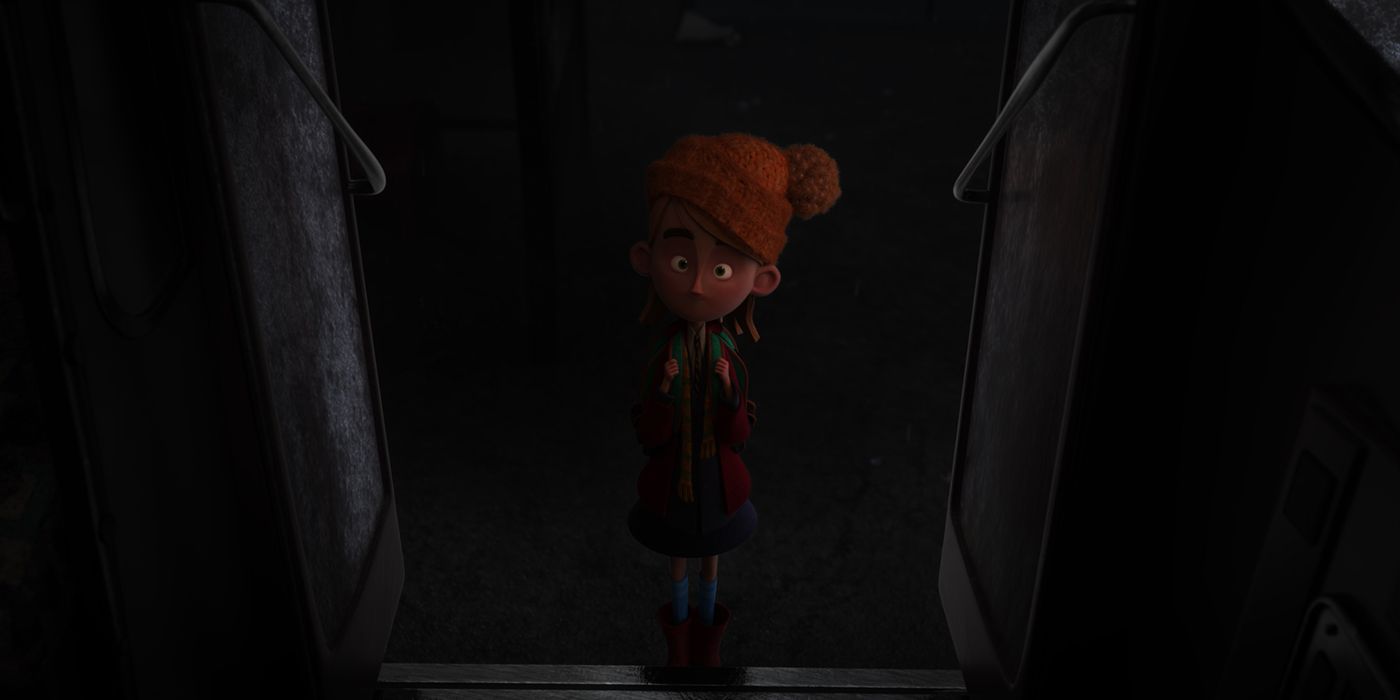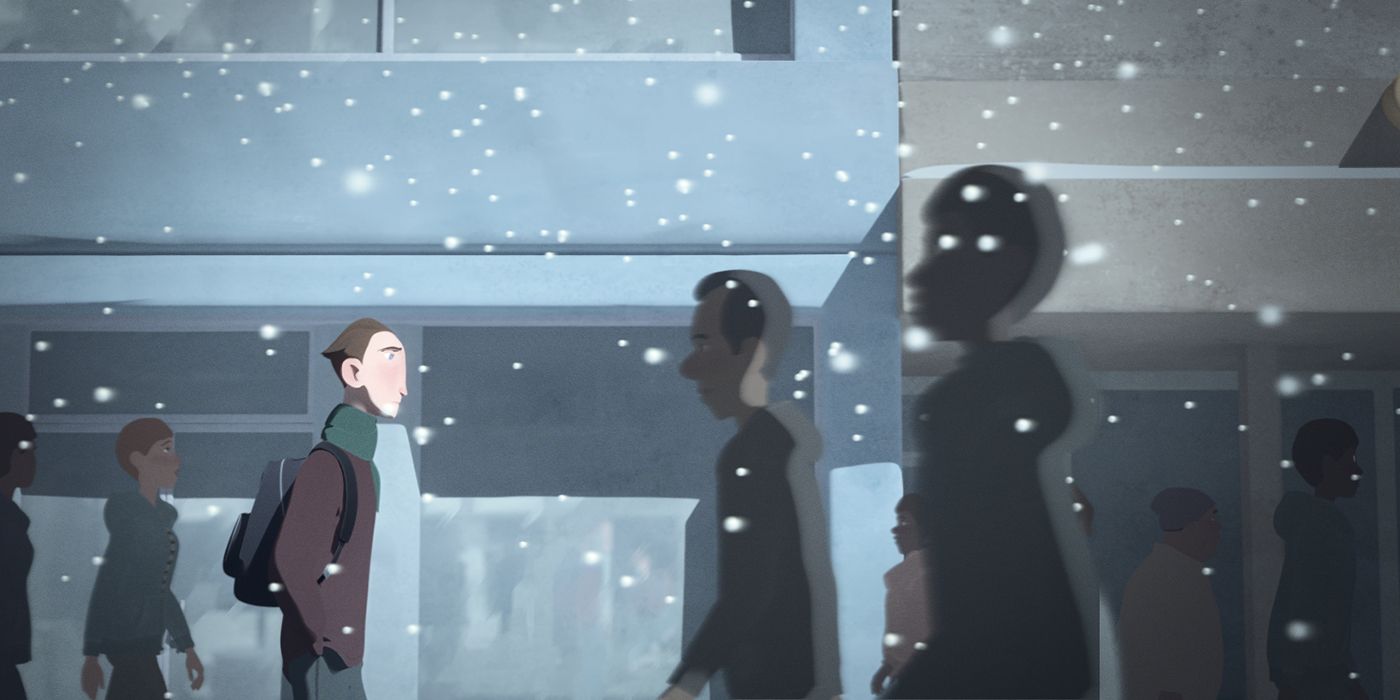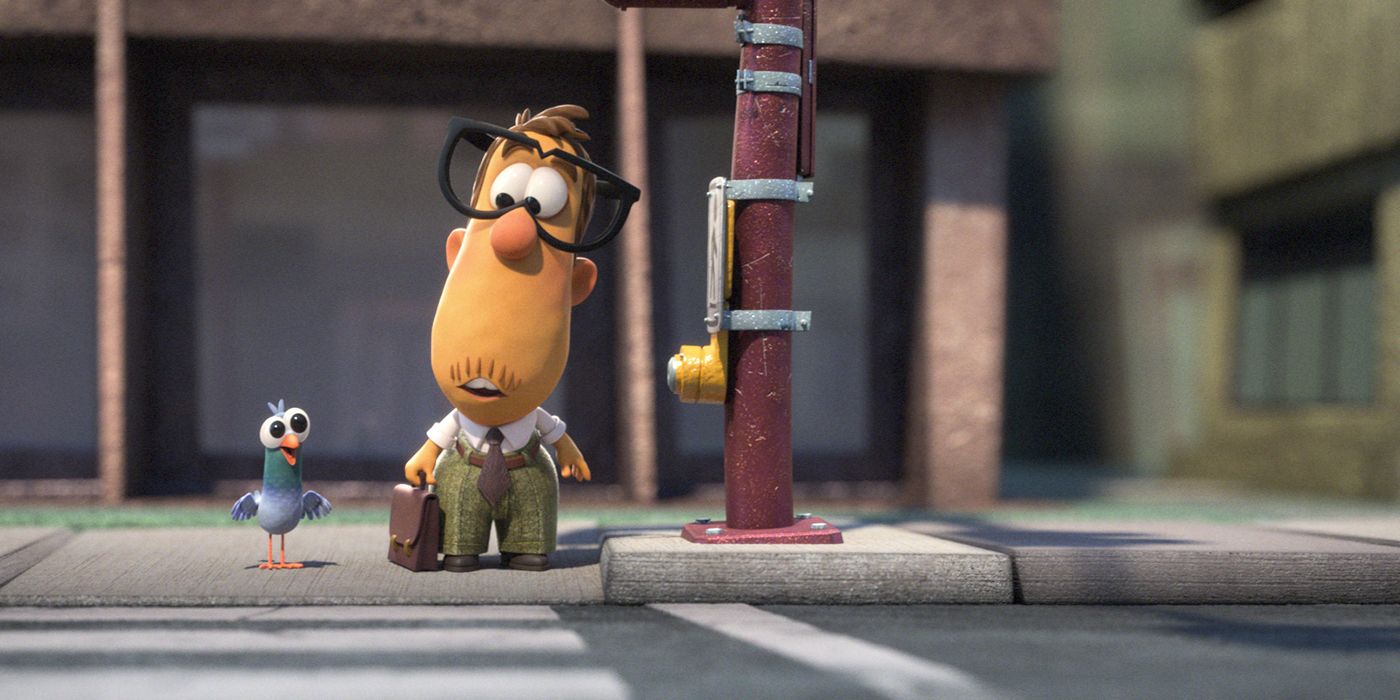Disney’s Short Circuit project represents the studio’s commitment to collaboration and creativity, not to mention providing its employees with new opportunities. Since 2016, a blind selection process has been used to turn the pitches of aspiring filmmakers into fully realized short films. And since last year, Disney+ has made those shorts available for audiences on its streaming platform.
14 films initially premiered under the Short Circuit banner, and five more arrive on August 4 for the second season. While each of the five new films is an exploration of Disney’s innovative animation styles, three in particular touch on very personal themes: “Coming Home,” “The No.2 To Kettering”, and “Crosswalk.”
Those three pieces were directed by Liza Rhea, Jacob Frey, and Ryan Green respectively. The filmmakers spoke to Screen Rant about what the Short Circuit project means to them, how much they learned from their advisors, and the way their stories went from ideas to the screen.

Screen Rant: I love that you three are grouped together because it feels like each of you found the magic in the mundane, if you will, with small moments that you wouldn’t expect to be so mysterious or fantastic. Can you each tell me a little bit about how the idea sparked in your mind, and why that was the one you pitched?
Jacob Frey: My short was pretty much based on my personal experience of living in Los Angeles and having grown up in a small town in Germany, and always traveling home to visit my parents. On that journey, just realizing or seeing little bits and pieces of change in the environment, [would make] me feel a little bit conflicted whether this is still the home that I think about when I go home to visit my parents and what might be there. There’s big fears involved when I go home to build my family, which I’m pretty much trying to capture. It was almost like a psychiatry session taking this risk, but that’s the inspiration behind it.
For me, I think the emotional core of the story is so important that it was obvious that’s the story I want to submit. I put all my efforts in if I get selected – which luckily turned out – to bring this film to life.
Liza Rhea: Mine was also a personal experience of getting the public bus to school when I was a child. In England, we don’t have school buses. It’s full of people going to school and work, and they all seemed a little bit bogged down with the weight of the world – and I was also in that “don’t make eye contact” mindset. And one day someone smiled at me, and it kind of lifted my spirits.
I felt that was my obligation to pay it forward, so I would smile at people on my journey and noticed that they’d smile at people. I got the nickname The Smiler from the bus drivers because I feel like negativity is contagious, so can positivity be. So that kind of was like, “Maybe I should make a little film about that.”
Ryan Green: When this opportunity came up, I was actually tossing around a couple of different ideas. But the concept of personal freedoms versus social living was in my head very strongly; I was thinking about that a lot. And while I was thinking about that, I was waiting at a long light outside Disney.
I just was thinking, “This is kind of a good metaphor for what I’m thinking about. This light is what we socially agree upon to keep us safe, but I can look the whole way down the road in either direction and there’s absolutely no traffic. Why am I still standing here?” So, that just became the beginning of this piece.

Can you each talk about your collaborative process with your assigned advisor?
Jacob Frey: We actually have multiple advisors, depending on the app, but there was one at the very beginning to help guide us a little bit – with technical challenges, for example. The technical challenge was a huge concern in my project at the beginning because it’s pretty much about a storyboard of a character walking through an entire city populated with people while seasons are changing, and that just raises a lot of red flags to people in terms of complexity.
Having an advisor at that point was really helpful, to just navigate through those borders and strategize on how we could make things a little bit less complicated and more efficient. One of those aspects, in the case of “Going Home,” was actually to adjust the look of the film: to help us do a separate texture, apply that to the same house, switch the color on it, and then make look it like a different house. Then to just scattered it around the city to create an entire city with a very small amount.
Liza Rhea: I am an environment modeler at Disney, so that’s really my usual domain. When someone’s like, “Hey, can you steer the ship and help guide all these other departments,” it was kind of daunting.
I’m so grateful to have had my advisor from the beginning, and then again – like Jacob said – you have department people who can really help guide you. I had one for lighting and animation, and them giving me insights into what we’re capable of was so helpful. Taking small bites at a time instead of feeling completely overwhelmed was really helpful.
Ryan Green: Yeah, I had to lean on my advisors pretty strongly. It was very enlightening to see that there are people around that knew their craft so well, that all I had to do was just have a discussion with them and tell them what was in my head. And they were like, “Well, how about this? And how about this?”
Even my lead on the animation team comes to mind, Bobby Hughes. We had to talk about how to do this style a little bit differently. Stop Motion is a little bit punchier; it’s on twos, if not maybe more than that. It’s jargon for every other frame of the film, not just every frame, which is what CG films usually do these days. So, we had to construct a whole style and figure out how to execute that.

What would you say took you the most out of your comfort zone when making this leap into directing?
Jacob Frey: That’s a great question. I think it was just very daunting at the beginning. You want to be selected when you apply with your idea, and then when you get selected, you’re like, “Oh, my God. Oh, my God. What do I do now? I really have to show what I could do.” Also, to use your time wisely. It was really daunting to be in the director’s chair at first.
Luckily, I have directed before I came to Disney, my own short firms. But at that point, I was wearing a lot of hats on the production myself, simply because I didn’t have people who could help me. Having such a huge team that covers every aspect of your work was really interesting, just seeing how to set up artists for success and let them contribute to your project. You feel like you have a very strong vision for your project, which is very emotional from your own experience. But you’re letting them contribute to it and then just elevating that even higher and creating something that you didn’t think would be possible.
Liza Rhea: For me, coming out of my comfort zone was leading, really. I don’t know why, but I’ve never really felt as though people might want to follow me. So, just having faith that the words I’m saying are actually resonating, and people are listening, and action’s taking place.
To actually start to see that come to fruition, with people showing me the work that they were doing and having things like start to take shape, was super eye-opening for me. And that gave me confidence that actually maybe I could do this.
Ryan Green: For me, a complication that comes to mind with this was that I was on what’s called a rolling schedule. I was working on the other movies, and then having to chip away at it. It was very difficult to be boarding a scene for Frozen 2 and being fully in there – and then suddenly I’m in a meeting, talking to the animation crew, and I have to switch gears and be totally on top of what we need to do for that meeting. That was a specific challenge for me in this process
All 5 films from Short Circuit‘s second season will be available on August 4 on Disney+.




